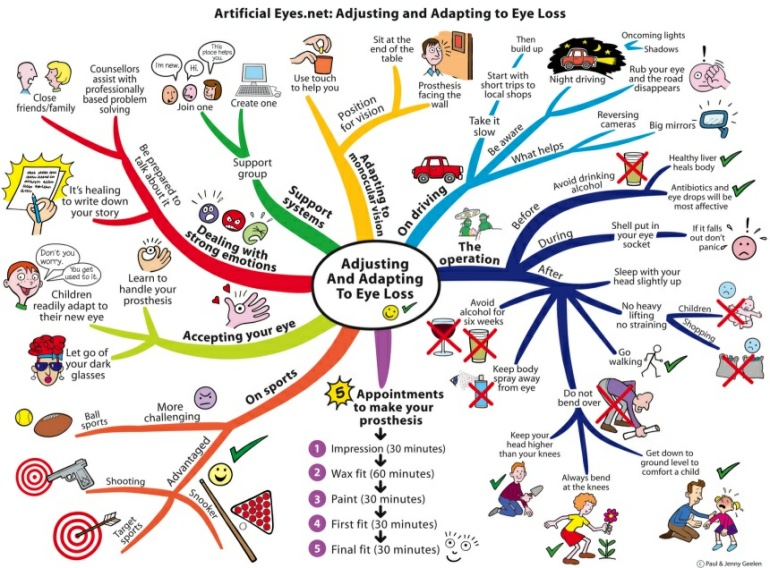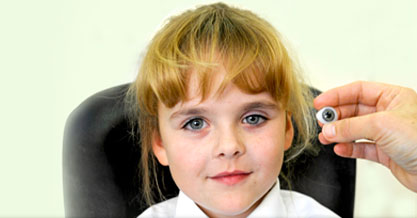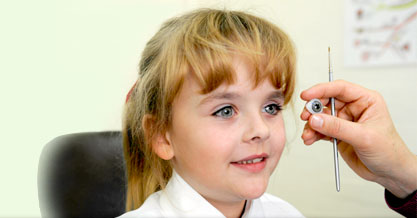Adjusting to Eye Loss
Mind Map: Adjusting and Adapting To Eye Loss
 The operation
The operation Appointments
Appointments On sports
On sports Accepting your eye
Accepting your eye Dealing with strong emotions
Dealing with strong emotions Support systems
Support systems Adapting to monocular vision
Adapting to monocular vision On driving
On drivingWhen we experience any major change in life we go through a process of adjustment and adaption. When someone is faced with the prospect of losing an eye the experience can seem overwhelming. There are many aspects that need to be addressed.
We encourage people to visit their ocularist as soon as they can. During that visit the ocularist can explain the operation, the process of making an eye prosthesis, support mechanisms and understanding monocular vision.
This Adapting and Adjusting to Eye Loss mind map has been put together to make it easier to understand the journey.

Feel free to comment or ask any questions about the information provided using the comments section at the end of this page.
Arranging permission to reprint
A larger version of this map is available for personal, non commercial use. if you would like permission to reprint the mind map for non-commercial use in a hospital, medical centre or support group please send a request using the Contact form.
Download: Artificial Eyes Mind Map: Adjusting and Adapting to Eye Loss (PDF 1.3Mb)
Who prepared the mind map
Paul Geelen, Jenny Geelen - Ocularists: Paul and Jenny are founding members of the Ocularists Association of Australia and practising Ocularists. In addition to supporting many of their clients deal with eye loss, they provide training to hospitals and medical personnel in Western Australia and have initiated a peer support group, trained by Michael Tunnecliffe. Website: Paul and Jenny Geelen, Ocularists.
Michael Tunnecliffe - Clinical Psychologist: Michael specialises in the areas of peer support, trauma, critical incident response and recovery planning, and provides services to many government and private sector organisations including the Western Australian Police. He provides peer support training programmes, and has trained the eye loss peer support group in Western Australia.
Jane Genovese, Sharon Genovese - Mind Mappers: Jane and Sharon are skilled education consultants and mind mappers. Website: Learning Fundamentals and Live The Solution.
Julia Sutton - Facilitator: Julia is experienced in community development and group process facilitation, and co-ordinated the preparation of the mind map.




[…] Paul and Jenny collaborated with a distinguished clinical psychologist who specialises in trauma response to create a peer support training programme. This means that people who have already experienced eye loss can provide peer support to others who are going through the experience. Not only did they produce the peer support training, they asked Jane and Sharon Genovese to prepare an Adjusting to Eye Loss Mind Map. […]
[…] plans to use our Adjusting to Eye Loss Mind Map as a guide to walking the audience through the entire process, beginning with the surgery and […]
[…] Darwin Hospital and got to meet some of the ophthalmologists working there. I showed them the Adjusting to Eye Loss mind map and explained how we are using it. They have booked me up to talk to their staff during […]
[…] the Adjusting to Eye Loss Mind Map we make the observation that children readily adapt to their new […]
[…] the Artificial Eyes Mind Map we came up […]
[…] Download Mind Map […]